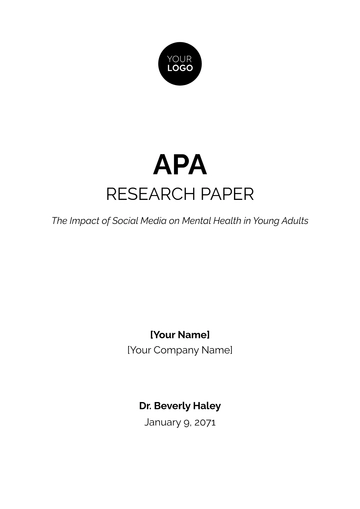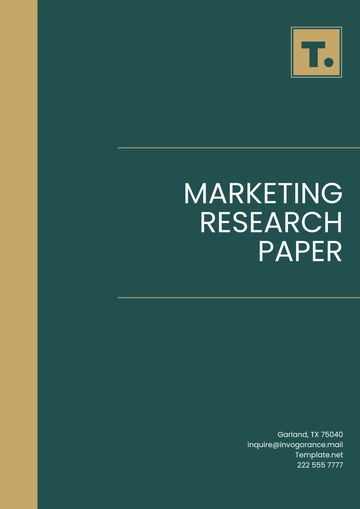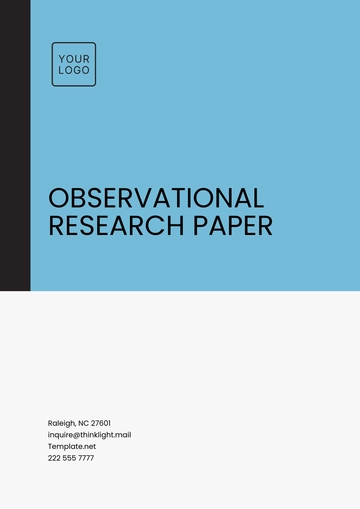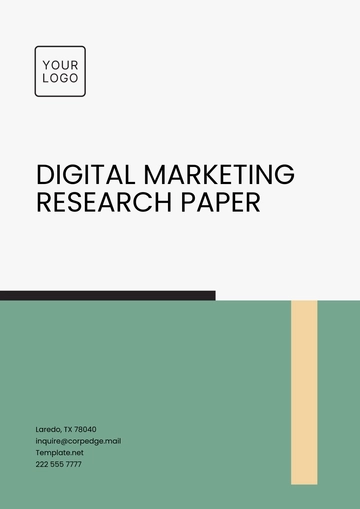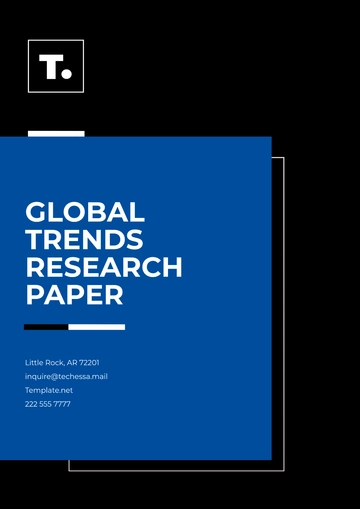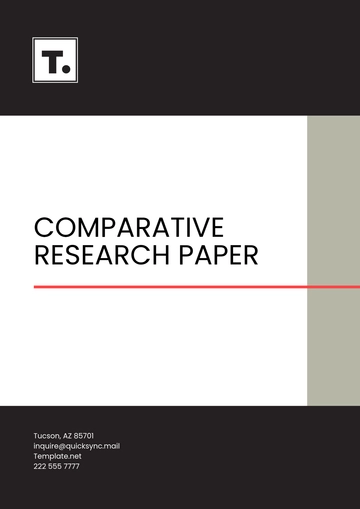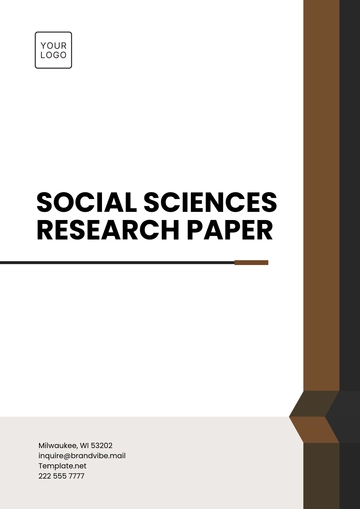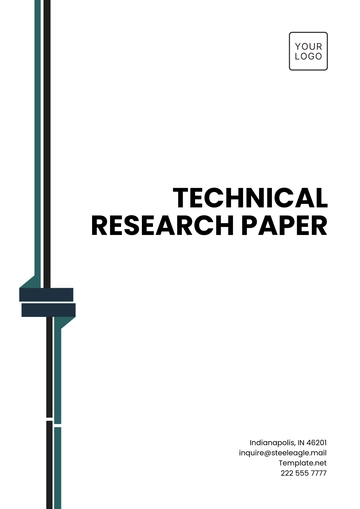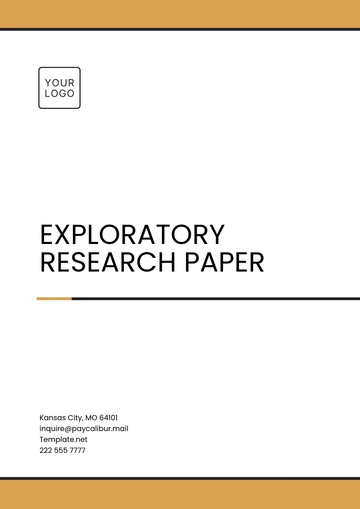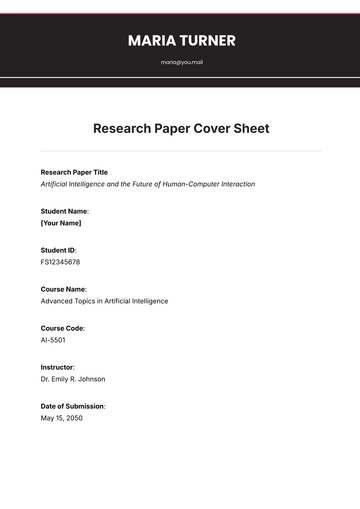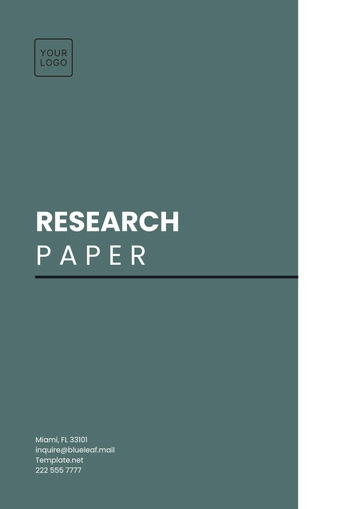Free Digital Marketing Research Paper
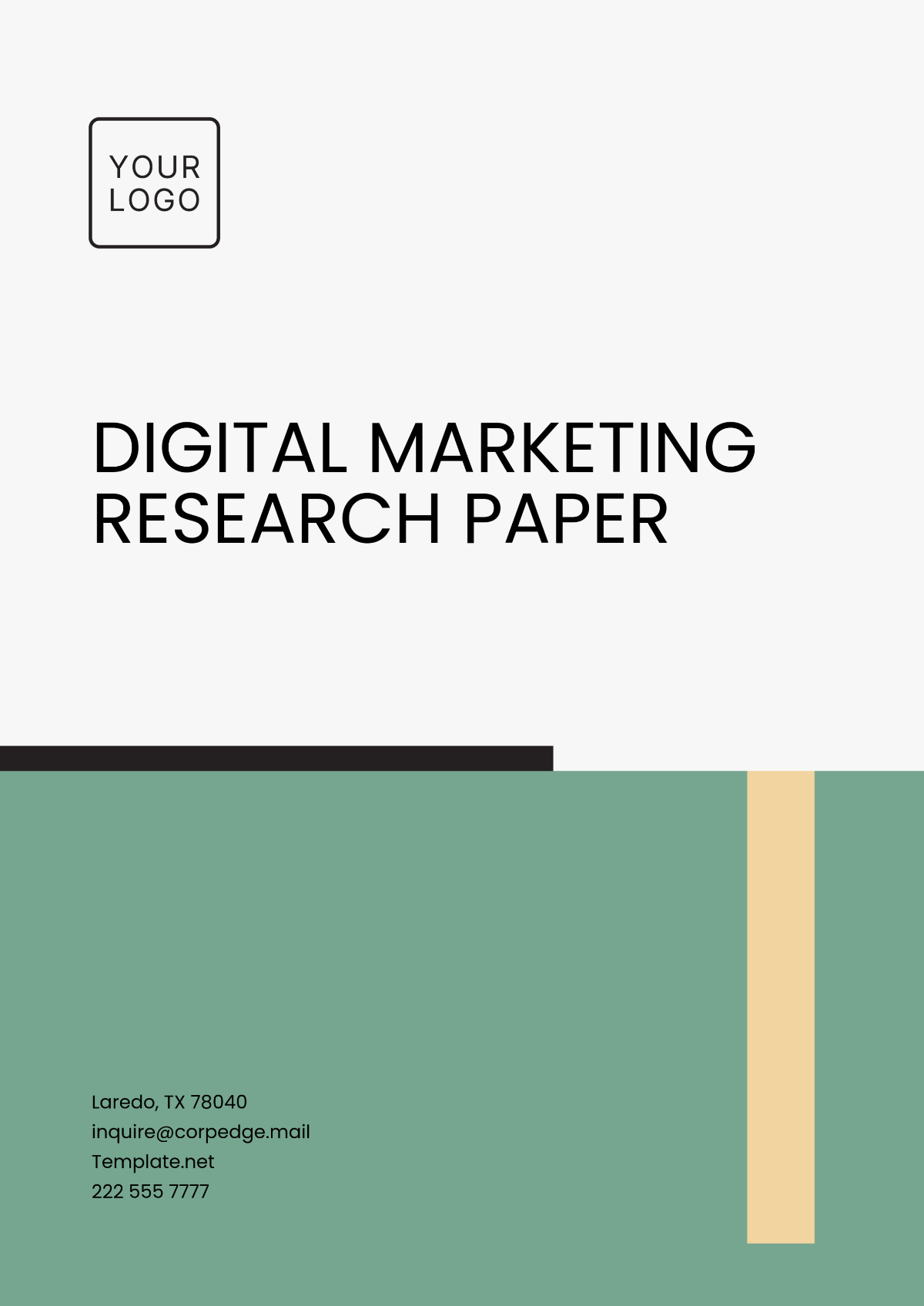
I. Title Page
Title: "The Future of Digital Marketing: Trends, Strategies, and Global Impacts"
Author: [Your Name]
Institution/Organization: [Your Institution Name]
Date: January 15, 2060
II. Abstract
This research paper examines the evolving landscape of digital marketing in the 2060s, analyzing trends, strategies, and their global impacts. It investigates how emerging technologies such as Artificial Intelligence (AI), augmented reality (AR), and data analytics have transformed marketing approaches across various sectors. The study explores the implications of personalized marketing, shifts in consumer behavior, and the growing reliance on automation. Findings show that AI-powered tools, interactive content, and immersive experiences are now at the forefront of digital marketing strategies. The research provides recommendations for businesses seeking to maintain a competitive edge in a global market increasingly influenced by technological advancements.
III. Introduction
Digital marketing has transformed significantly, making 2060's landscape vastly different. As tools and technologies evolve, businesses must adapt to new consumer expectations and trends. AI, big data, VR, and AR have changed brand-consumer communication. This research analyzes these developments, focusing on how multinationals adjust to a digital world, aiming to understand the driving forces and identify future successful strategies in digital marketing.
IV. Literature Review
Studies show rapid growth in digital marketing, emphasizing SEO and social media. Recent focus includes AI, AR, and VR, with AI-driven content enabling personalized advertising. Digital marketing's global reach involves tailoring content culturally (Lee & Kim, 2058). Mobile-first strategies are rapidly adopted in emerging markets (Global Marketing Insights, 2059).
V. Methodology
The research follows a mixed-methods approach, combining both qualitative and quantitative research techniques:
Survey: 500 marketing professionals from multinational companies were surveyed, focusing on their use of emerging technologies in digital marketing.
Interviews: 20 in-depth interviews were conducted with industry leaders in digital marketing to gather insights into future trends and challenges.
Market Report Analysis: A detailed analysis of market reports from 2019 to 2060 was conducted to understand long-term trends.
AI-Powered Analytics: AI tools were used to analyze consumer behavior data from various regions, including North America, Europe, and Asia, to identify global patterns in digital engagement.
VI. Results
The survey results indicated a sharp rise in the adoption of AI-driven tools, with 80% of respondents reporting that they had integrated AI into their digital marketing campaigns by 2060. More than 60% of marketing budgets are now dedicated to data analytics, AI automation, and personalized content creation. A notable shift toward immersive experiences was also observed, with 70% of respondents planning to use AR and VR in marketing campaigns within the next 5 years. In terms of mobile marketing, 75% of global consumers now interact with brands via smartphones, and businesses are increasingly optimizing content for mobile platforms. Additionally, data analysis revealed that 50% of consumers prefer brands that offer tailored experiences based on their preferences, further supporting the importance of personalization in future marketing efforts.
VII. Discussion
AI and Data Analytics: AI and data analytics play a pivotal role in shaping the future of digital marketing. Personalization has emerged as a key driver of consumer engagement: Businesses that use AI to tailor content see significantly higher conversion rates. However, the widespread use of AI raises ethical concerns regarding data privacy and security.
Immersive Marketing Technologies: The growing trend of AR and VR indicates a shift toward more interactive and engaging customer experiences. These technologies offer brands the opportunity to create deeper emotional connections with consumers.
Regional Differences in Digital Infrastructure: Multinational companies must navigate regional differences in digital infrastructure. Variations in internet access and technological adoption across countries present challenges.
VIII. Conclusion
Digital marketing in 2060 is driven by AI, AR, and data analytics. To stay competitive globally, businesses must adopt these innovations. The future will focus on personalized experiences, data-driven strategies, and immersive technologies. Companies must also address data ethics and adhere to global consumer protection standards. Digital marketers need to innovate while upholding ethical practices and explore the long-term effects of these technologies on consumer trust and new marketing models.
IX. References
Smith, J. (2055). The Digital Marketing Revolution: How AI is Shaping Advertising. Digital Marketing Press.
Lee, S., & Kim, A. (2058). Global Marketing Strategies: Tailoring Digital Content to Cultural Preferences. Marketing World Journal.
Global Marketing Insights. (2059). Mobile Market
ing and Consumer Engagement: Trends in Emerging Markets. Global Marketing Research.
Brown, T. (2060). The Role of Immersive Technologies in Digital Marketing. Virtual Media Press.
- 100% Customizable, free editor
- Access 1 Million+ Templates, photo’s & graphics
- Download or share as a template
- Click and replace photos, graphics, text, backgrounds
- Resize, crop, AI write & more
- Access advanced editor
Simplify your digital analysis with the Digital Marketing Research Paper Template from Template.net. Fully editable and customizable, this template is perfect for exploring online trends, SEO strategies, or social media campaigns. Editable in our Ai Editor Tool, it includes structured sections for presenting data, methodologies, and actionable insights. The professional format ensures clarity and engagement,



